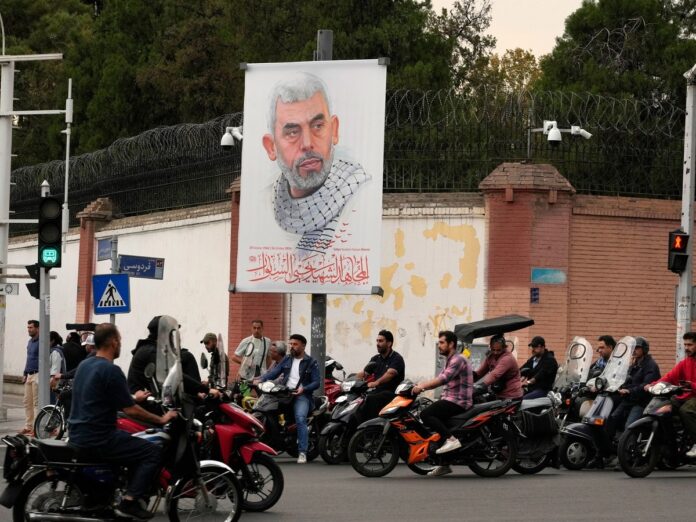The death of Hamas leader Yahya Sinwar is undoubtedly a defining moment in Israel's year-long war against Hamas. He was one of the key conspirators of the deadly attack that took place on 7 October 2023 in southern Israel. Israeli Prime Minister Benjamin Netanyahu said that the killing of Sinwar, long a major objective of the Israel Defense Forces (IDF), would signal the beginning of the end of the war. But he clarified that the war is not over yet. In fact, former Defense Minister and War Cabinet member Benny Gantz said that the IDF would continue to operate in Gaza for years to come.
So, what effect will Sinwar's death actually have?
Sinwar's death changed at least one aspect of the war. He was an iconic figure for Palestinians, whether good or bad. He was seen as a man who was taking the fight to Israel. Sinwar's continued survival and Hamas's counterattack against Israel in Gaza were actually increasing the group's popularity.
Opinion polling in late May showed that support for Hamas among Palestinians in the occupied territories had reached 40 percent, an increase of six points compared to three months earlier. Support for the Palestinian Authority, which controls the West Bank, was down by about half.
The face of Hamas has changed due to Sinwar's death. If Hamas is unable to replace him with a strong leader like him, it could be a turning point. One of the names being discussed is that of Khaled Mashal, the former head of Hamas's political office and still influential in the organization.
This moment presents an opportunity for Hamas's new leader to demand a ceasefire with Israel and end the dire conditions facing the people of Gaza. But the question still remains whether Sinwar's death will serve Israel's war objectives.
What would a victory mean for Netanyahu?
The main issue is that Netanyahu's war goals have not yet been met: eliminating Hamas as a fighting force and threat to Israel, freeing the approximately 100 Israeli hostages still held in Gaza, among whom More than half are now dead. Although the killing of Sinwar is a major step toward limiting Hamas's ability to continue the war against Israeli forces in Gaza, Israeli troops are still facing some very big problems there. Israeli journalists accompanying Israeli forces have raised the issue that Hamas militants are returning to areas from which the IDF had driven them out, in part due to the group's extensive tunnel network.
Another issue for Netanyahu is that right-wing members of his cabinet have threatened to resign from his coalition government if he agrees to a ceasefire before destroying Hamas as a fighting force. At the same time, Netanyahu is also facing increasing pressure regarding the hostages. If there is no ceasefire and negotiations to release him, his family and supporters will continue the large demonstrations that have taken place in Israel in recent months. Netanyahu is still mulling over Israel's promise of retaliation for Iran's missile attack against his country in early October.
If Israel launches a major attack, what will Iran do in response?
Iran's problem is that it has always depended on a strong Hezbollah in Lebanon to respond to Israel militarily on its behalf. And now it seems to have lost this power, as Hezbollah has weakened significantly in recent weeks.


